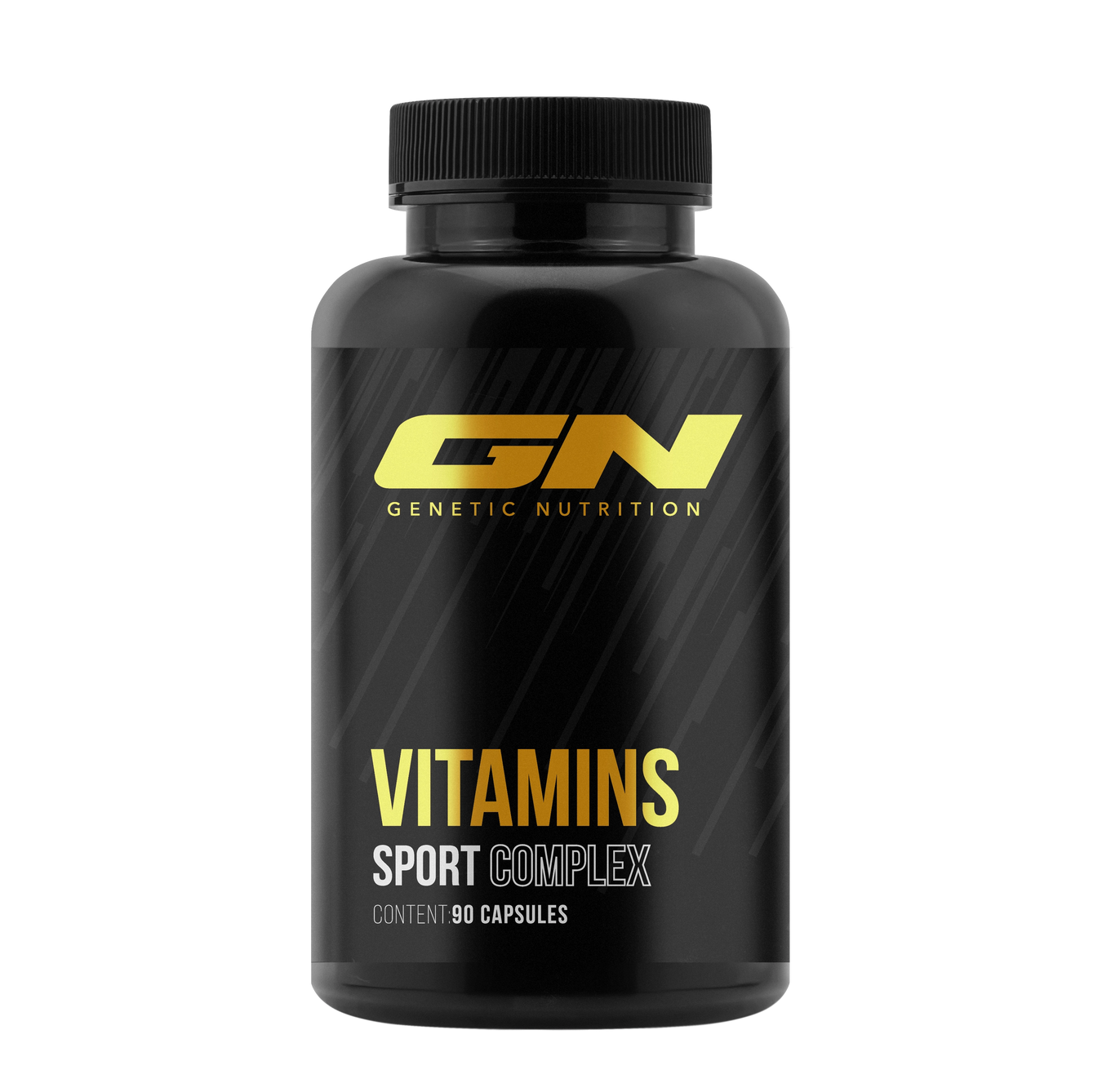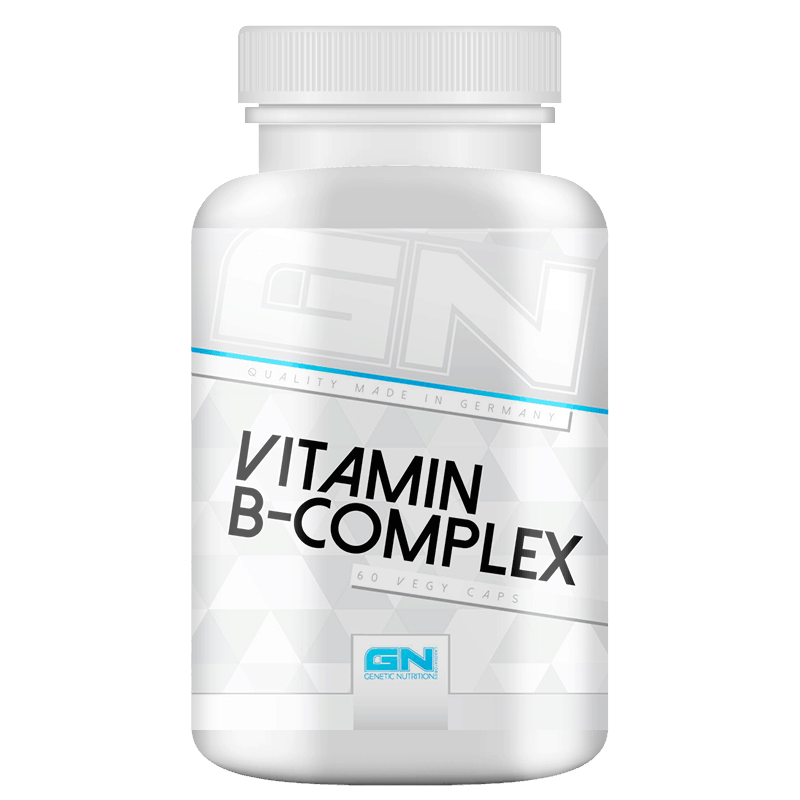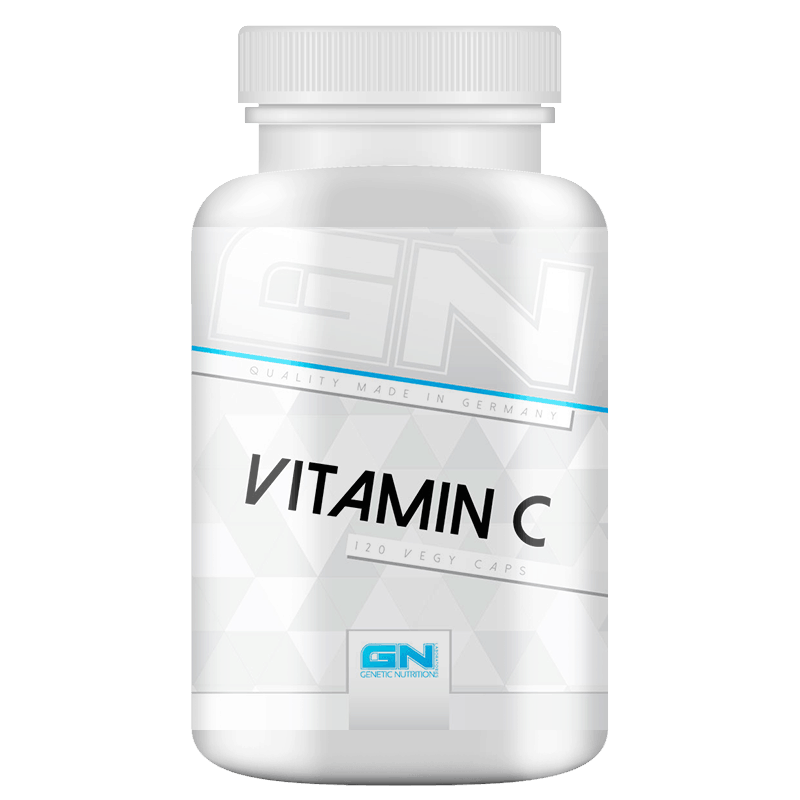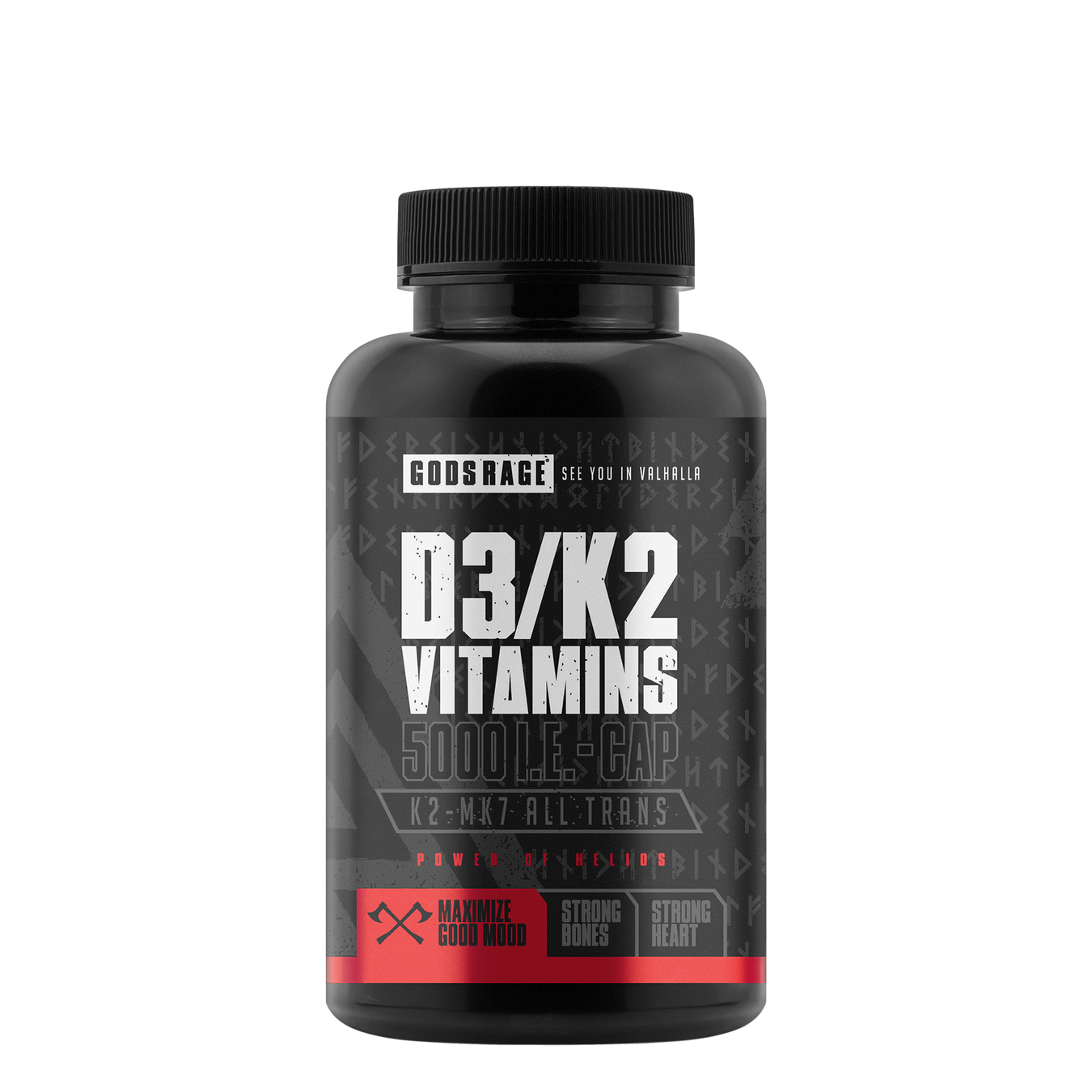Filters
- Stacker 2 Remove filter
- Clear all
- Stacker 2 Remove filter
- Clear all
-
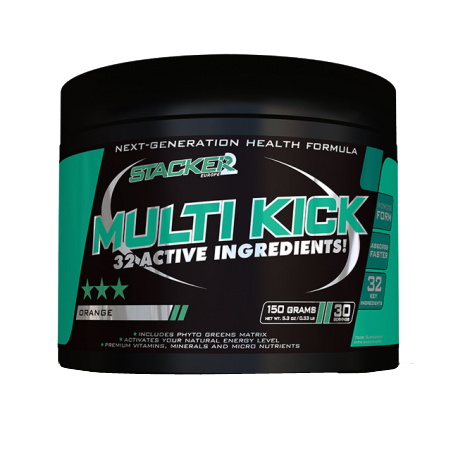 Save 11%
Save %
Original price €19,90Original price €19,90 - Original price €19,90Original price €19,90Current price €17,71€17,71 - €17,71Current price €17,71| /
Save 11%
Save %
Original price €19,90Original price €19,90 - Original price €19,90Original price €19,90Current price €17,71€17,71 - €17,71Current price €17,71| /Multi Kick · 150g
Stacker 23 reviewsPremium vitamins, minerals and micronutrients 32 active ingredients Contains a phyto greens matrix Ultra high doses of vitamin B12 and zinc Orang...
View full detailsOriginal price €19,90Original price €19,90 - Original price €19,90Original price €19,90Current price €17,71€17,71 - €17,71Current price €17,71| /Save 11% Save %
Vitamins are micronutrients that the body needs for many vital functions. However, with a few exceptions, our body cannot produce them itself, which is why a sufficient amount must be taken in through food in order to rule out the negative effects of a deficiency on health, performance and regeneration. Humans are dependent on a vitamin-rich diet, as they can only produce very few vitamins in small quantities themselves.
Vitamins are involved in many metabolic reactions. They are needed to regulate the utilization of proteins and carbohydrates as well as minerals by ensuring the breakdown or conversion of these substances and thus also serve to generate energy. Vitamins are essential for the development of teeth, bones, blood cells and cells and also strengthen the immune system. This means that vitamins are not only important for our health, but also indispensable for muscle building, as they serve as supplements that are needed for the complete utilization of important nutrients such as protein.
In the past, vitamins were named according to the order in which they were discovered. In the meantime, they were named according to their effect, e.g. antiscorbutic vitamin. Nowadays, vitamins are named according to their function or chemical composition. Vitamins are not important as building materials or energy suppliers for the organism, they mainly have controlling and catalytic properties in the metabolism. This is precisely why they are so vital for us humans.
The different vitamins
Vitamins are divided into fat-soluble and water-soluble according to their properties. Their solubility explains many of their biological properties. Fat-soluble vitamins are sometimes stored in very large quantities in the liver and fatty tissue. The organism can still be supplied with the relevant vitamins from these vitamin stores, even during longer phases of undersupply. The high storage capacity of these vitamins can also lead to hypervitaminosis (symptoms of poisoning) due to a corresponding oversupply.
Water-soluble vitamins do not have this storage function. However, vitamin B12 is an exception. Any excess supply is excreted in the urine. The fact that fat-soluble vitamins can be stored can lead to an oversupply, which can have undesirable side effects. However, this risk does not exist with water-soluble vitamins, as they are simply excreted again if there is an excess.
Fat-soluble vitamins are
- Vitamin A (retinol)
- Vitamin D (calciferols)
- Vitamin E (tocopherols and tocotrienols)
- Vitamin K (phylloquinones and menaquinones)
Water-soluble vitamins are
- Vitamin B1 (thiamine)
- Vitamin B2 (riboflavin)
- Vitamin B5 (pantothenic acid)
- Vitamin B6 (pyridoxine)
- Vitamin B12 (cobalamin)
- Vitamin B15 (pangamic acid)
- Vitamin C (ascorbic acid)
- Vitamin H (biotin)
- Vitamin B9 (folic acid)
- Vitamin B3 (niacin)
The following foods are rich in vitamins:
- Vitamin A Peppers, spinach
- Vitamin B1 Pork, peas
- Vitamin B2 Fish, broccoli
- Vitamin B3 Egg, green leafy vegetables
- Vitamin B5 Liver, mushrooms
- Vitamin B6 Meat, potatoes
- Vitamin B7 Egg yolk, lentils
- Vitamin B9 Oranges, cabbage
- Vitamin B12 Fish, dairy products
- Vitamin C Citrus fruits, kale
- Vitamin D oily fish such as eel and salmon
- Vitamin E Nuts, butter
- Vitamin K green salad, spinach
The functions of vitamins
It is well known that retinol (vitamin A) is good for the eyes. It also keeps the skin and mucous membranes healthy and is important for the growth processes of many cells. The various B vitamins each have a different function in our body. Vitamin B1 has a significant influence on our nervous system and also helps to metabolize carbohydrates. Riboflavin (B2), niacin (B3) and pantothenic acid (B5) also each contribute to metabolic processes in the body, with B2, for example, helping to supply the brain with glucose. Vitamin B6 is particularly important for fat metabolism.
We have biotin (B7) to thank for beautiful hair and smooth skin. Biotin also protects our genetic material. Folic acid (B9) is responsible for various growth processes, cell division and blood formation. Cobalamin (B12) is particularly important for the breakdown of certain fatty acids and the formation of new blood. As it is found almost exclusively in animal products, vegans in particular need to pay attention to their B12 levels and take supplements if necessary. Ascorbic acid (vitamin C) supports metabolic processes, the formation of hormones and messenger substances, the formation of connective tissue and, last but not least, our immune system by fighting free radicals in the body.
Vitamin D is a special multi-talent that can positively influence our physical performance, the formation of sex hormones and bone tissue as well as our immune system and psyche. Vitamin D is also said to have a positive effect in the treatment of cardiovascular diseases and cancer. Vitamin E protects against free radicals. Last but not least, our body needs vitamin K, which plays a role in the formation of coagulation factors. What is the daily vitamin requirement? The required amount of each vitamin depends on gender, age and individual needs. The DGE formulates guideline values for the individual characteristics, according to which at least a deficiency can be ruled out.
Tips for the correct use of vitamins
Vitamins are sensitive to external influences such as heat, air and light. When processing food, you should therefore pay attention to a few things so that the content of valuable substances is preserved as much as possible. Vitamins are destroyed by the influence of light, air and heat. Vitamins are lost even during prolonged storage. Vitamin C is still 100% present in vegetables when they are harvested. However, on the fourth day of optimal storage, only less than 50% of it is still intact. If stored incorrectly, e.g. at room temperature (20°C), the vegetables will only contain 30% of the original vitamin concentration after two days. Vitamin C is very sensitive to light. After three hours in sunlight, only approx. 35% of the vitamin is still present. If vegetables are stored in water, 10% of the vitamin C is washed out after 12 hours in an unchopped state. When chopped, over 50% has already been washed out.
What harms the vitamins in vegetables
- Removal of vitamin-containing parts (too thick peeling of apples, removal of the outer layers of cereal grains in the production of white flour)
- Cooking for too long, "overcooking", pouring away the cooking water
- too long storage and transportation
- washing and rinsing too intensively
- Keeping food warm for too long and reheating it repeatedly
- cooking at too high a temperature, unsuitable cookware (no steam should escape when the lid is closed)
What you can and should do
- Deep freeze
- Cook briefly and use the cooking water for a sauce, for example (as the water-soluble vitamins have dissolved in it)
- Cooking in steam, for example in a colander (the gentlest method)
- Use fresh, high-quality vegetables
- Use a suitable saucepan that distributes the heat evenly from the bottom and sides (preferably stainless steel with an aluminum core)
- choose the right pot size (two thirds of the pot should be filled so that the space in the pot can be filled with the steam from the vegetables' own moisture and no additional water is required)
Vitamin deficiency
Malnutrition, malnutrition or malabsorption can lead to hypovitaminosis (vitamin deficiency) and in extreme cases to avitaminosis (complete absence of vitamins in the body). Deficiencies of certain vitamins (K, B12, H) can also occur due to the death of the intestinal flora, e.g. as a result of antibiotics. A vitamin deficiency can cause various diseases such as scurvy, beriberi, night blindness or - in the case of complete deficiency - even death. Vitamin deficiency is less of a problem in industrialized countries than in developing countries. Nevertheless, even in Western nations there are of course certain factors that promote vitamin deficiency symptoms. In addition to pregnancy and breastfeeding, these include environmental pollution, an unbalanced diet, stress, alcohol and nicotine consumption as well as certain illnesses and medication.
An overdose of vitamins is only dangerous in certain cases and leads to symptoms of poisoning, namely in the case of vitamins A and D. In principle, our vitamin requirements can be covered by a balanced and varied diet. In this case, supplementation will probably not be necessary. However, if the diet is not continuously balanced and varied, a lack of important vitamins can quickly occur. A food intolerance could also be a plausible reason for supplementation. In both cases, you are hindering the smooth running of all bodily functions and, in the worst case, even risking your health. In most cases, strength and endurance athletes need an above-average amount of vitamins and minerals. A dietary supplement is therefore recommended.

